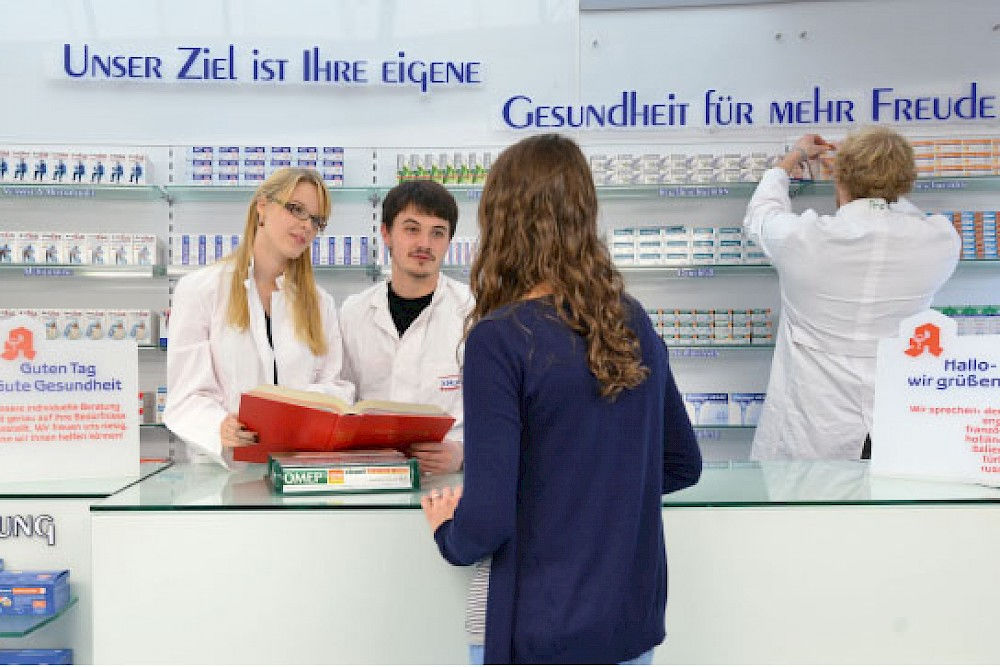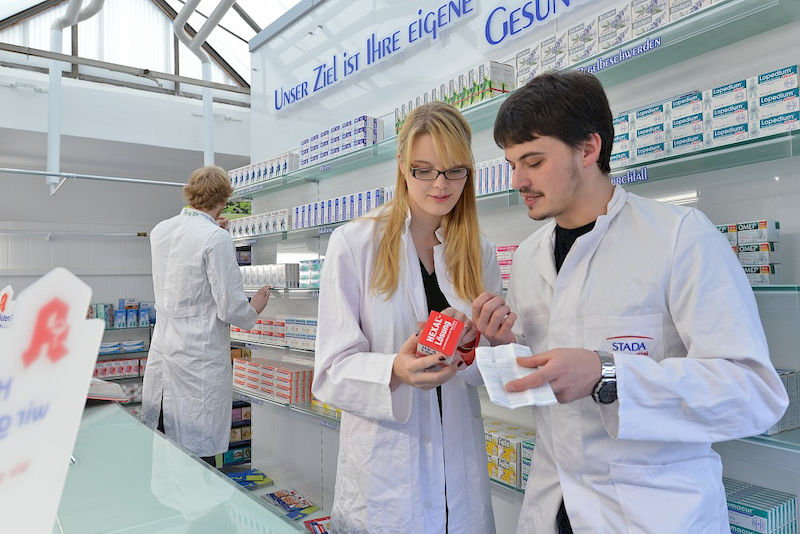Against risks and side effects

Martin Luther University’s use of the teaching pharmacy sets new academic standards, since such a facility is far from typical at many German universities. The phrase “consult your pharmacist about possible risks and side effects” has become a popular catchphrase in Germany. Yet very few people wonder about where pharmacists get their knowledge and how they acquire it. At this point, it is worth having a look at the training. Germany has recently struck out in a new direction. Teaching pharmacies are meant to help up-and-coming pharmacists acquire the skills they will need later on in their careers. The university in Halle is one of just a handful of universities in Germany to offer students this opportunity. The project, which is already underway, is made possible through donations from the company Hexal.
If you want to get a picture of Halle’s teaching pharmacy, you will need to climb right to the top as it is somewhat hidden on the attic floor of the Institute of Pharmacy at Weinberg Campus. However, the innovative project has nothing to hide. At first glance, the result of a year’s worth of work looks almost exactly like a normal chemist’s shop. The wide counter with medicine placed carefully around it in groups, and shelves with a diverse array of medical cosmetics. It is supposed to feel real. Ultimately, future pharmacists need a scenario in which to practice advising patients competently and in a professional way under real conditions but in a protected environment.
“These skills are extremely important later on in their day-to-day professional lives and this is why they need to be practiced,” says Professor Ralf Benndorf. In the majority of cases, pharmacists need to be able to recall very complex knowledge with one glance at a prescription. This includes questions about tolerance and undesirable side effects of medications when, for example, the patient is suffering from more than one illness. According to Benndorf, there is no room for error. In the end, the effects of medications are highly complex. One wrong decision could lead to severe complications. One example: an asthma patient receives high blood pressure medication which contains beta blockers that are dangerous for people with asthma. In this case, they shouldn’t be taken.
What is the training like? “We practice situations that can occur daily at a chemist’s,” says Ralf Benndorf. The training pharmacy, which will mainly be used in his seminars, is equipped with computers, current pharmacy software, and sample medications. This collection will gradually be supplemented by additional sample medications as part of a partnership with the University Hospital’s pharmacy. This will ensure that there is a wide variety of medication from various manufactures to train with.
In the first phase, students work together in groups and prepare a consultation on a medication that is specified beforehand. Later, the training is to be taken one step further. The students will then receive a prescription for something unknown and have to advise their fellow students acting as patients. This is no easy task, says Prof. Benndorf, because “they need to be able to identify complex problems in drug treatment in a short amount of time, and to communicate these to the patient in a clear way.” Later these seminars will also be recorded on video so that the students receive feedback about their performance and are able to improve on their mistakes.
Conventional pharmacy software will be installed in the future that is specific to the training programme. It will enable information about the medicine to be scanned and displayed. Dealing with this technology has to be learned, as does working with a man-sized touch pad on which training videos about the correct way to use asthmas sprays are shown.
Because all of this requires a high level of previous knowledge, the training in the teaching pharmacy is primarily offered to fifth-semester students. “In initial tests, they responded positively to the training opportunities,” says Ralf Benndorf who has been teaching in Halle for the past year. The pharmacist, who holds the first and only W3 professorship in clinical pharmacy and pharmacotherapy in Germany, knows one thing for sure: “Our new teaching pharmacy will raise the level of education even further. This will ultimately benefit the reputation of pharmacy training at Martin Luther University.”
Contact: Prof. Dr. Ralf Benndorf
Clinical pharmaceutics
Phone: 0345 5525150
Send an email

